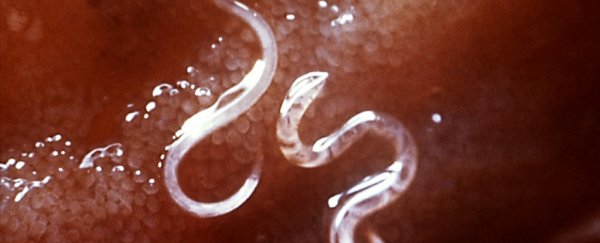Mosquito bites are one thing, but returning from a walk on the beach with parasites embedded in your feet is a whole other kind of challenge.
That's what reportedly happened to Katie Stephens and Eddie Zytner, a couple from Ontario who were vacationing in Punta Cana in the Dominican Republic, according to a Canadian news station.
The pair acquired a larva migrans, or hookworm, infection from walking barefoot on the beach – most likely in an area where animals infected with the parasite had defecated. (That's the most common way the parasite spreads.)
The infection left their feet itchy and swollen.
"If your feet become incredibly itchy [after travel] please get it checked out right away since we simply thought it was just bug bites and it became worse as each day passed," Stephens wrote on Facebook.
Fortunately, a hookworm infection is easily treated with ivermectin, an anti-parasitic medication.
After Health Canada denied the request the couple's doctor made for the medicine, Zytner's mother reportedly drove to Detroit to purchase the drug.
Parasites like hookworm around the world
Ivermectin is a derivative of Avermectin, which is considered such an important anti-parasitic medicine that its creators were awarded the Nobel Prize in Physiology or Medicine in 2015.
Yet despite the fact that hookworm is very treatable, it remains a serious issue for many people around the globe. The CDC estimates that between 576 and 740 million people worldwide are currently infected.
A brief infection with a parasite like hookworm is painful and itchy, but it can be more serious for people chronically exposed.
A number of infected people may not show symptoms, but according to the CDC they experience protein deficiency and blood loss leading to anemia. Children who are continuously infected may lose enough iron and protein to negatively affect growth and mental development.
Hookworm and a number of other parasitic illnesses are considered neglected tropical diseases.
Such illnesses tend to infect poorer populations in developing countries, which is why so many people go without treatment.
But many neglected tropical diseases could potentially be controlled with existing intervention techniques such as mass drug administration.
This article was originally published by Business Insider.
More from Business Insider:
